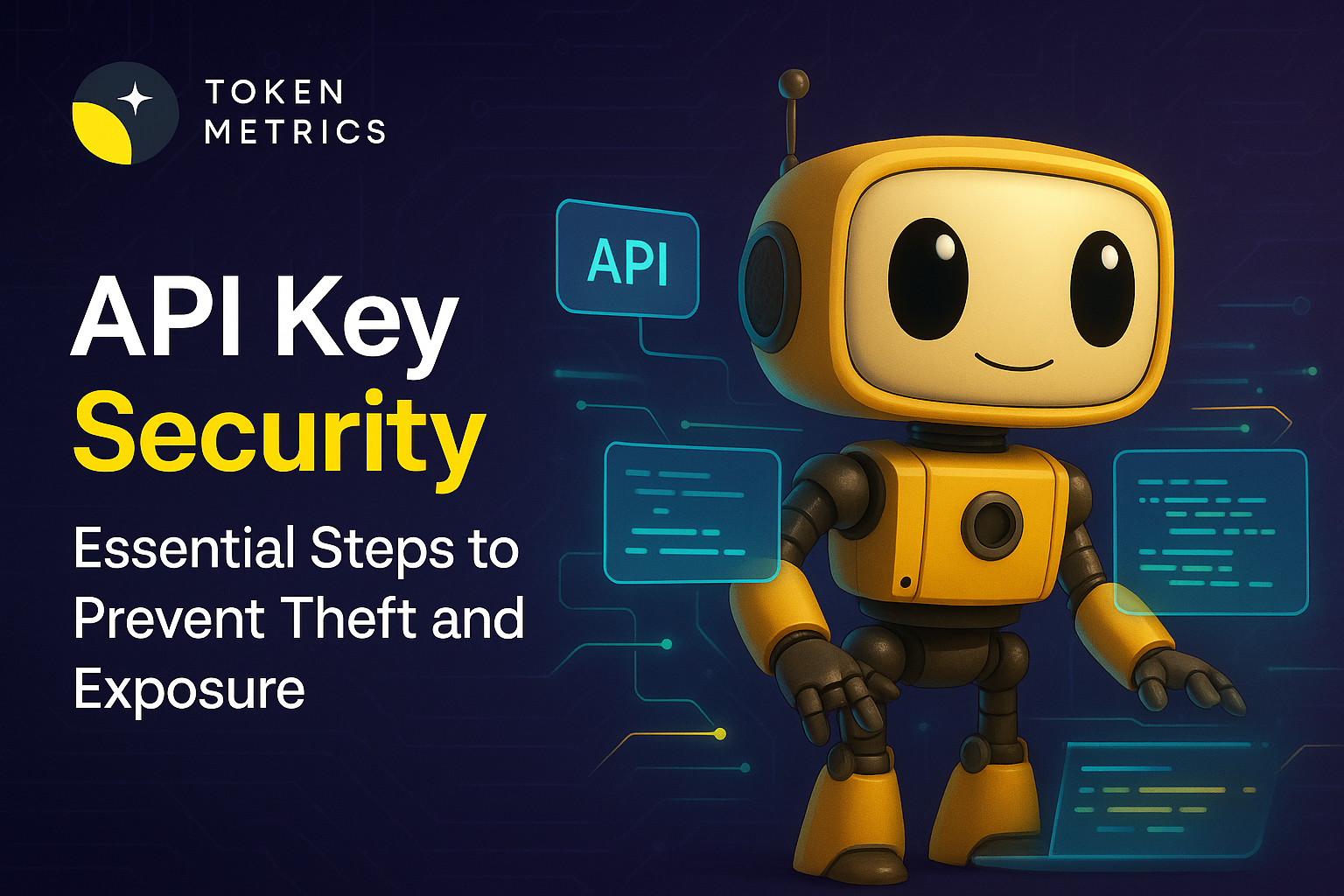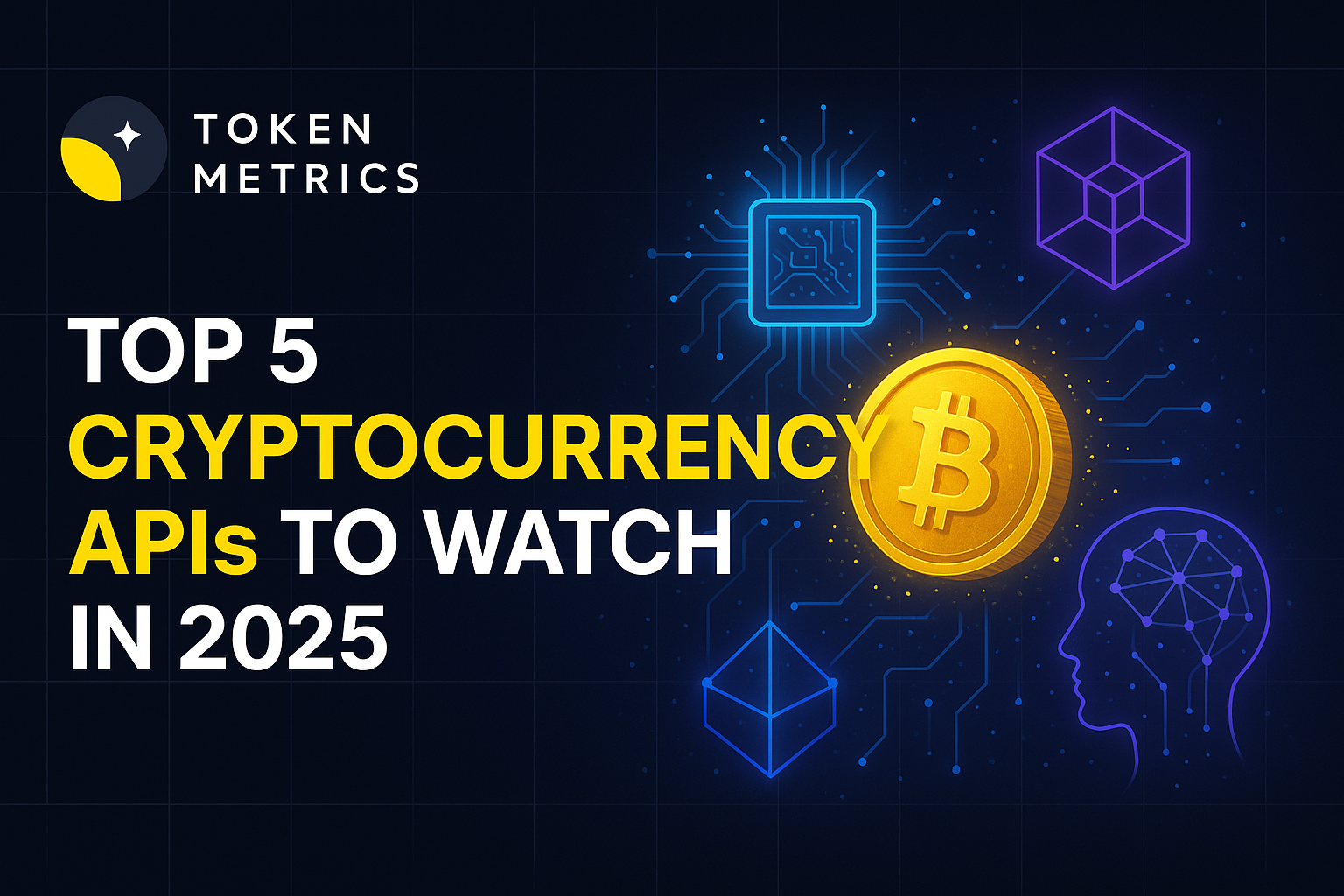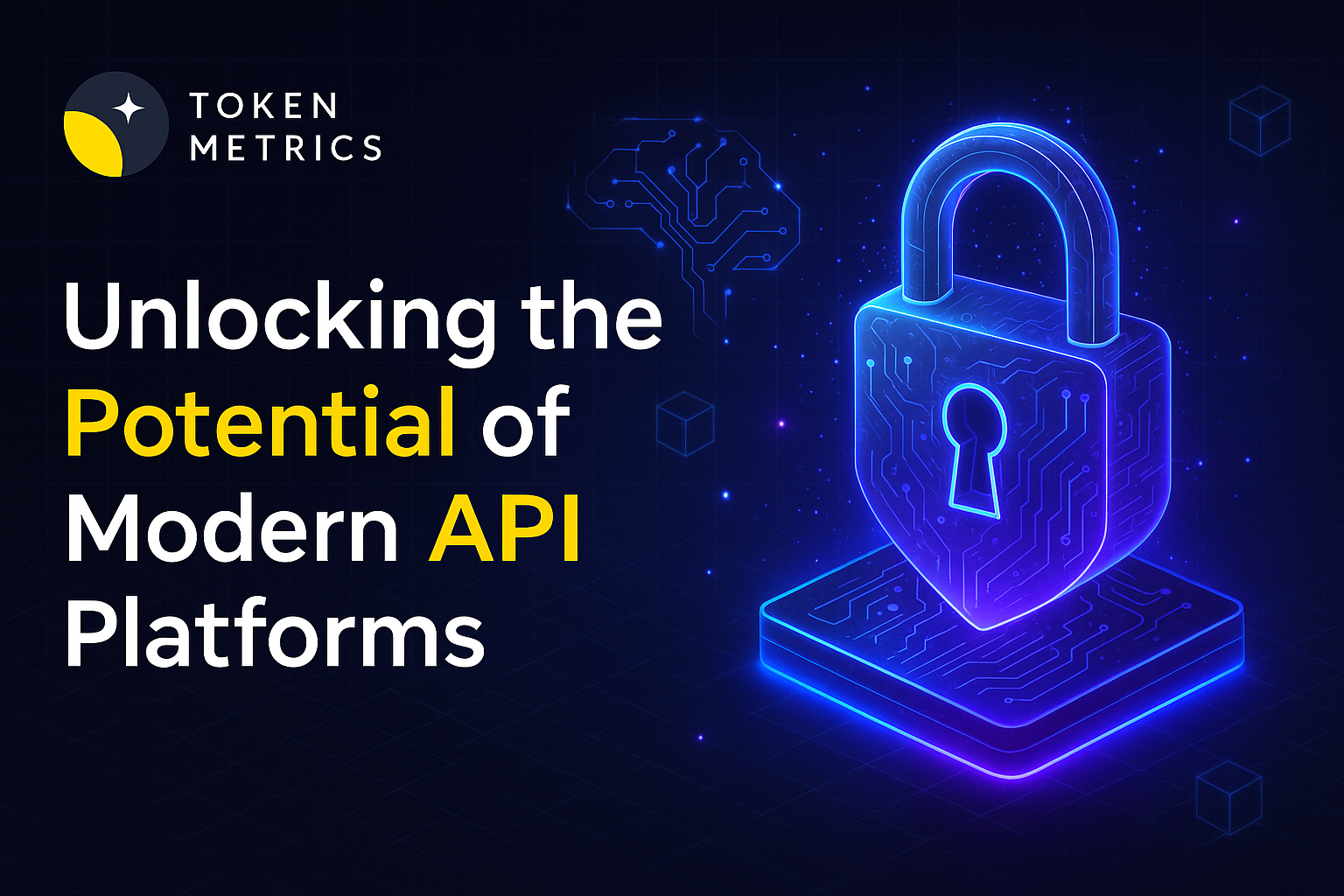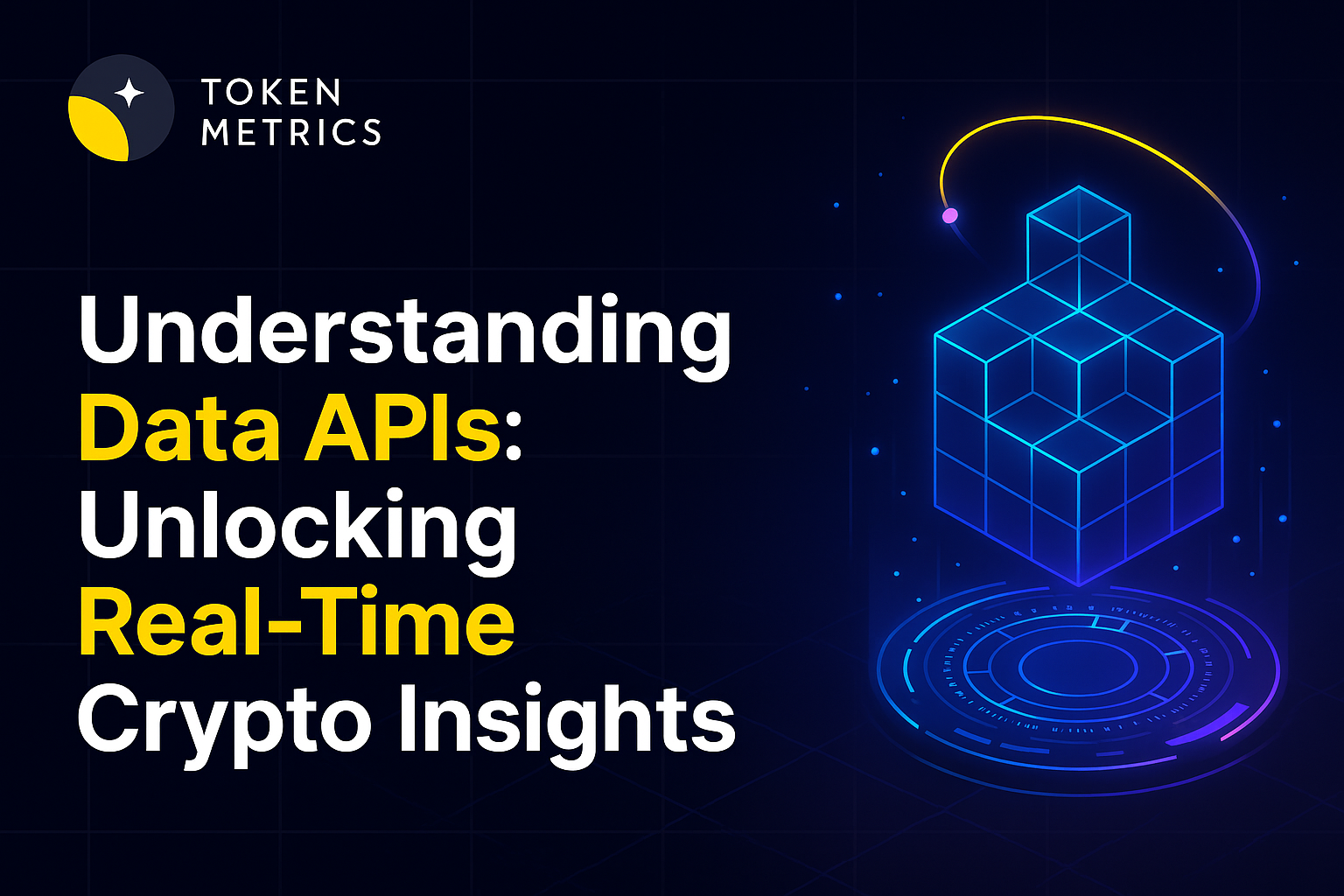API Key Security: Essential Steps to Prevent Theft and Exposure

APIs are the backbone of many modern applications, especially within the crypto and AI sectors. But with convenience comes risk—leaked or stolen API keys can compromise your app, data, and even your users. Ensuring your API keys are properly protected is vital for any developer or organization integrating with financial, trading, or AI services.
Why API Keys Are Valuable Targets
API keys act as digital passports, granting access to services, data, and sensitive operations. In crypto and AI environments, these keys may unlock valuable features such as live price feeds, trading execution, or proprietary AI models. Attackers seek out API keys because they offer a direct route into your systems—potentially allowing unauthorized trades, data exfiltration, or abuse of paid services.
According to security research, exposed API keys are among the most common root causes of data breaches in software development. In high-value areas like cryptocurrency or financial data, a compromised API key can mean immediate and irreversible losses. This makes robust API key management and security a non-negotiable part of your development lifecycle.
Common Risks and Attack Vectors
Understanding how API keys are stolen is the first step towards preventing it. Attackers employ several strategies to discover and exploit keys:
- Source Code Leaks: Developers may accidentally commit API keys to public repositories, such as GitHub or Bitbucket.
- Frontend Exposure: Embedding keys in client-side code (like JavaScript) can expose them to anyone inspecting the source.
- Network Interception: Transmitting keys over unencrypted (HTTP instead of HTTPS) channels allows attackers to intercept them via man-in-the-middle attacks.
- Poor Access Control: Unrestricted API keys (lacking IP whitelisting or permission scopes) are vulnerable even if leaked only once.
- Third-party Integrations: Insecure plugins or libraries may mishandle or leak keys unintentionally.
Each risk vector underscores the importance of treating your API keys as sensitive credentials, on par with passwords or private cryptographic keys.
Best Practices to Secure Your API Keys
Effective API key protection requires a combination of technology, process, and vigilance. Here are key best practices to help you minimize your security risks:
- Store Keys Securely: Never hardcode API keys into your application code. Use environment variables and secure vaults (like AWS Secrets Manager, HashiCorp Vault, or Azure Key Vault) to store and manage credentials.
- Restrict Key Permissions: Always use the principle of least privilege—create keys with only the permissions absolutely necessary for the intended function.
- IP Whitelisting: Where APIs allow, restrict key usage to specific server or client IP addresses to prevent unauthorized access.
- Rotate Keys Regularly: Implement a policy for frequent key rotation and revoke old keys when no longer needed.
- Monitor Usage: Set up logging and alerting for abnormal API activity (unexpected requests, spikes in traffic, etc.). This enables early detection of suspicious behavior.
- Use HTTPS Always: Never transmit API keys over unencrypted channels. HTTPS encrypts traffic, preventing interception by attackers.
- Never Expose in Client-side Code: For browser or mobile apps, design your architecture to never expose API keys in the frontend. Use backend servers to proxy requests where possible.
Adopting these strategies not only secures your API integration but also strengthens your application's overall security posture.
Advanced Protections and Tools for Developers
For applications in high-risk or regulated environments, advanced techniques can further minimize the risk of API key exposure:
- Automated Secret Scanning: Use tools like GitGuardian, TruffleHog, or native git pre-commit hooks to detect accidental key leaks in codebases.
- Zero Trust Architectures: Implement strong authentication and authorization layers beyond API keys, such as OAuth, JWTs, or mutual TLS for sensitive endpoints.
- Environment Segregation: Use different API keys for development, testing, and production environments. This reduces risk if test keys leak while still protecting valuable production resources.
- Role-Based Access Control (RBAC): Apply fine-grained controls so each API key aligns with its intended application's role and user authority.
Many leading API providers, including those in crypto and AI, offer these advanced controls within their developer portals. Reviewing your provider's best practices and security documentation is always recommended.
API Key Security in the Crypto Landscape
The risks associated with API keys in crypto applications are especially pronounced. Malicious actors often scan public repositories for leaked API keys associated with major exchanges, DeFi protocols, or analytics providers. Many high-profile hacks have originated from a single compromised API credential.
Therefore, when working with crypto APIs—such as market data, portfolio management, or trading execution—robust key hygiene is a must. Always treat your API credentials as confidential and regularly review your integrations for possible leaks or misconfigurations. Be extra cautious when using third-party frameworks or libraries, and validate the security of vendor SDKs before integrating.
Build Smarter Crypto Apps & AI Agents with Token Metrics
Token Metrics provides real-time prices, trading signals, and on-chain insights all from one powerful API. Grab a Free API Key
FAQ: Key Questions on API Key Protection
What is the difference between an API key and a password?
An API key is a unique identifier that grants access to a specific application or service feature. Unlike passwords—which are usually tied to user login—API keys often control programmatic or automated access and must be secured with equal vigilance.
Is it safe to store API keys in environment variables?
Storing API keys in environment variables is much safer than hardcoding them into codebases. However, ensure these environment variables are protected by server-level access controls and not inadvertently exposed during deployments or logging.
How do I know if my API key has been compromised?
Monitor your API provider dashboard for unexpected activity, such as unauthorized transactions or unusual spikes in requests. Some providers support alerts or allow you to instantly revoke or rotate keys if you suspect exposure.
Can I use the same API key across multiple applications?
This practice is discouraged. Different applications should use unique API keys, each with their own permission scope and tracking. If one application is compromised, it won’t affect the security of your other integrations.
How often should I rotate my API keys?
Key rotation frequency depends on your application's risk profile and provider requirements. As a rule of thumb, rotate production keys quarterly or after any suspected exposure, and always decommission unused credentials promptly.
Disclaimer
This blog post is for informational purposes only and is not investment advice or an endorsement of any product or platform. Always adhere to your organization’s security policies and consult official documentation for technical implementations.
Create Your Free Token Metrics Account

.png)




%201.svg)
%201.svg)


%201.svg)










.svg)




.png)